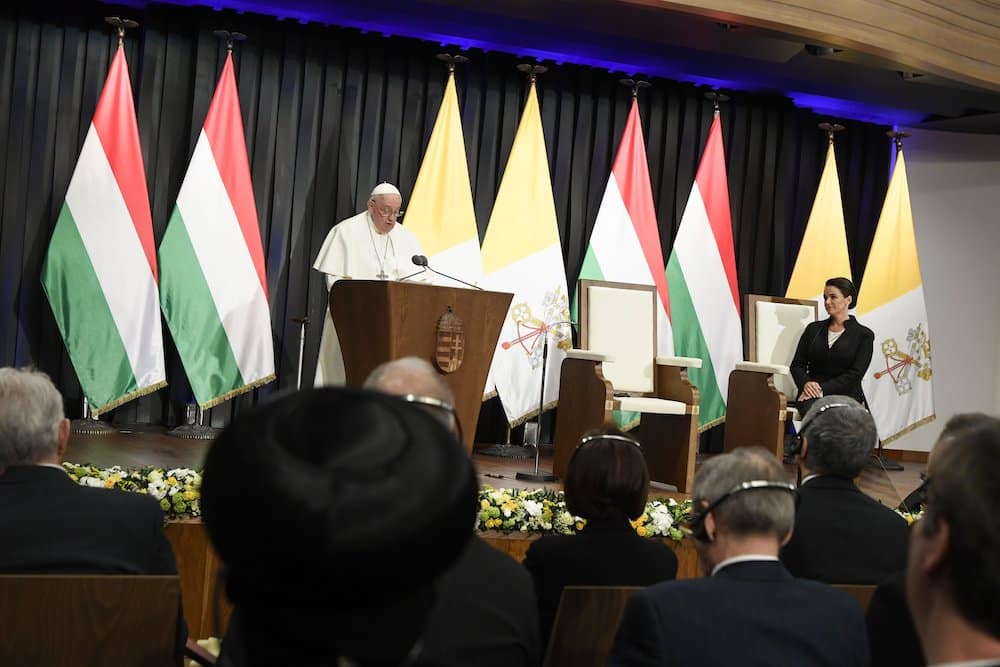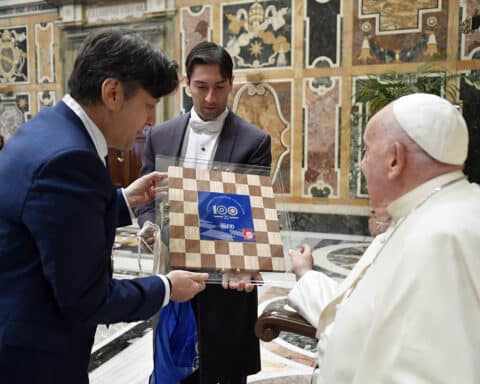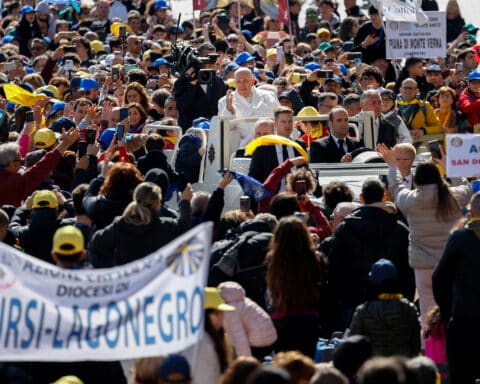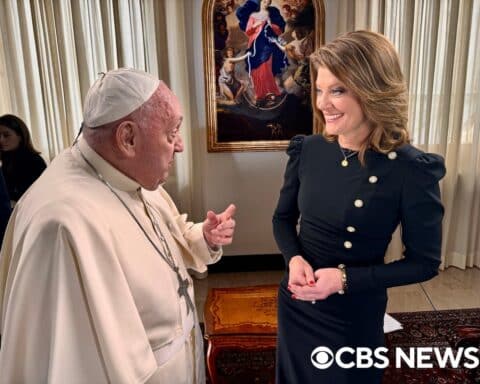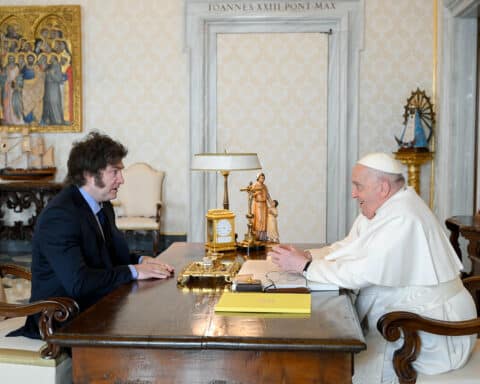The mainstream narrative heading into Pope Francis’ recent trip to Hungary was a simple one. Viktor Orbán, Hungary’s populist prime minister, is the global boogeyman of nationalism and isolationism. He supposedly represents precisely the opposite vision for Europe than that proposed by Pope Francis.
But as is often the case in both geopolitics and personal affairs, things are more complicated than these simple caricatures allow. And the proof is in the most undercovered speech from Pope Francis’ April visit to Budapest.
In an address delivered in a former Carmelite monastery (which was converted to a theater after Emperor Joseph II disbanded the community and has served as the seat of the Hungarian Prime Minister since 2019), Pope Francis offered an eloquent and simple summary of the Catholic view of politics. He drew attention to the oppression Budapest suffered in the 20th century, calling the city “the heart of a country that acknowledges the value of freedom and, having paid so great a toll to the dictatorships, is conscious of its mission to preserve the treasure of democracy and the dream of peace.”
At the heart of the pope’s speech to Hungarian civil authorities is a tension. For Pope Francis, European political leaders who wish to govern according to the Catholic vision have to balance the twin pressures of European unity and national identity. In his words, “I think of a Europe that is not hostage to its parts, neither falling prey to self-referential forms of populism nor resorting to a fluid, if not vapid, ‘supranationalism’ that loses sight of the life of its peoples.”
What are the forms of ideological colonization that wipe out differences among peoples? Pope Francis directly names “so-called gender theory” and the “right to abortion” in this speech. Raising another favorite theme of his, Pope Francis referenced Europe’s demographic winter. “How much better it would be to build a Europe centered on the human person and on its peoples, with effective policies for natality and the family like those pursued attentively in this country?” the pope asked. Noting that some countries have a median age of 46-48, the Holy Father praised Hungary’s pro-natalist and family policies.
Pope Francis exhorted Hungary’s leaders to look to the example of the country’s beloved saints, widely known for their charity, pointing to St. Stephen and St. Elizabeth. He further praised Hungary’s efforts to support Christians in need in Syria and Lebanon, saying, “Cooperation between the State and the Church has proved fruitful, ever respecting the need for a careful distinction between their proper spheres.” The Gospel must always be the animating point of reference for Christians. We cannot yield, as the pope says, “to a sort of ‘collaborationism’ with a politics of power.”
And that’s why I found this speech so extremely edifying. Because as true as it is on the international level, concerning the affairs of European states, it is even more so in our local communities. We cannot abandon Christian principles out of pragmatism or conformity. We have to treasure our faith and allow it to animate our response to the world around us, beginning with our neighbors.
Our faith can’t be absent from our politics. Always and everywhere, we love and live as Catholics. When asked about the future prospects of America last year, the French Catholic political theorist Pierre Manent gave this advice: “Do not let yourselves lose your principal strengths, which are a serious sense of loyalty to your people and attachment to serious religion.” Our strength will be in our fidelity to our communities (our parishes and families) and in our love for the Faith.
Father Patrick Briscoe, OP, is editor of Our Sunday Visitor. Follow him on Twitter @PatrickMaryOP.

